Rajasthan Organic Farmer Blends Unique Curd-Based Fertiliser, Earns Rs 80 Lakh/Year
Ratan Lal Daga from Bhansar Kutari village in Rajasthan adopted organic farming techniques to grow mango, lemon, pomegranate, lentils, wheat, bajra and other crops
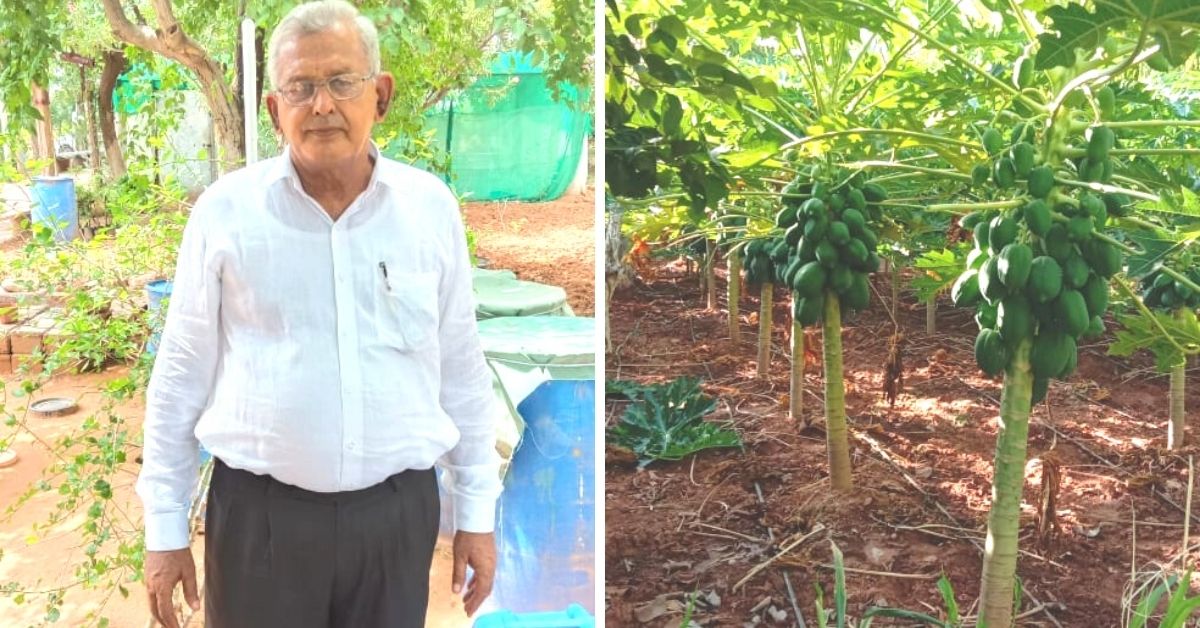
Thanks to its environment-friendly and harmful chemical-free advantages, consumer belief in organic food is a recent trend. But 70-year-old Ratan Lal Daga is an exception – far ahead of the curve. Ratan Lal began organic farming way back in 2003 and is a pioneer in the sector.
Like many others, Ratan, a farmer from Bhansar Kutari village in Rajasthan, was also a conventional farmer successfully practising the profession on 60 acres of ancestral land. Interestingly, even back then, he did have the habit of attending workshops and learning different agriculture methods from other farmers by travelling across India.
On one such occasion in 2000, he attended a session on organic farming in the Agriculture University, Bengaluru. Little did he know, those couple of hours would change the course of his farming forever.
“The vice-chancellor spoke about the ill-effects and negative impact of chemical fertilisers and pesticides in farming. Organic farming was a less known concept then. But, I had already experienced the points touched on while explaining the negative impacts,” Ratan tells The Better India.
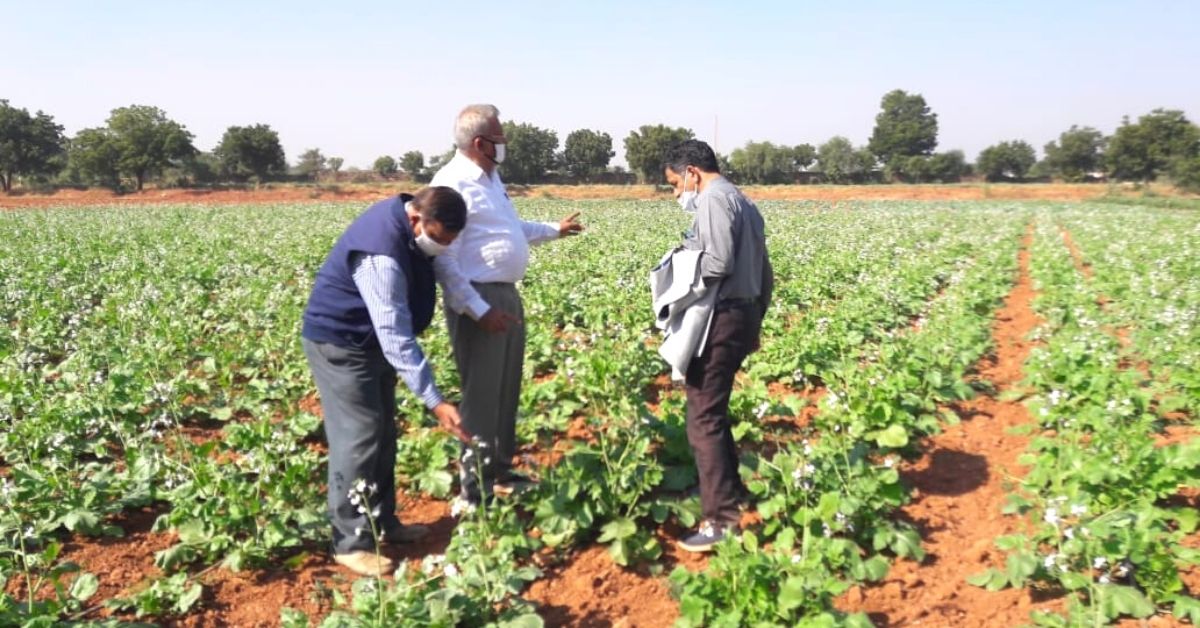
He observed that his chemical fertiliser usage had only increased over the years as the quality of the soil and its fertility kept deteriorating. “Using heavy amounts of chemicals was a common practice. The soil was hardening by the day, requiring more water, and crops became more susceptible to pests. Moreover, the labourers often complained about itchiness and irritation on the skin while using chemical fertilisers. It was because of the toxicity,” Ratan says.
Ratan says his workers also often visited the hospital. “The talk by the vice-chancellor started making sense and confirmed my doubts about the reducing quality. I immediately decided to make a shift to organic farming,” he adds.
At present, Ratan practices organic farming on his entire land with his self-made blends of organic feed and fertilisers made from curd to grow about 20 varieties of fruits, vegetables and crops. His mastery in organic farming earns him Rs 80 lakh a year.
Mastering organic farming with unique recipes
However, it wasn’t all smooth sailing. Ratan suffered a severe setback when he made the sudden shift on his farm. “Much of the produce was either lost, or the crop failed. It was because of the absence of microbes and micronutrients in the soil. With no chemical use, the plants and seeds did not receive the required nutrition,” Ratan says.
He switched back to chemicals. But he continued to make systematic efforts to increase his soil fertility through natural methods and steadily decreased chemical fertilisers and pesticides. Ratan used cow dung, compost and other organic materials to revive the natural elements and make soil healthy.
“I gradually moved from using chemicals to entirely farming organically by 2003. However, it was not until 2007-08 that the soil was completely free from toxins and showed no trace of chemical elements,” Ratan says, adding that he conducted tests to check the contents of the soil.
Speaking about the transition, Ratan says there was less awareness about organic farming techniques in the early 2000s, and he struggled to find correct ways to pursue them. “I researched a lot on the methods and connected with farmers practising organic farming. Meanwhile, the crop yield dropped in initial days and took a while to increase,” he adds.
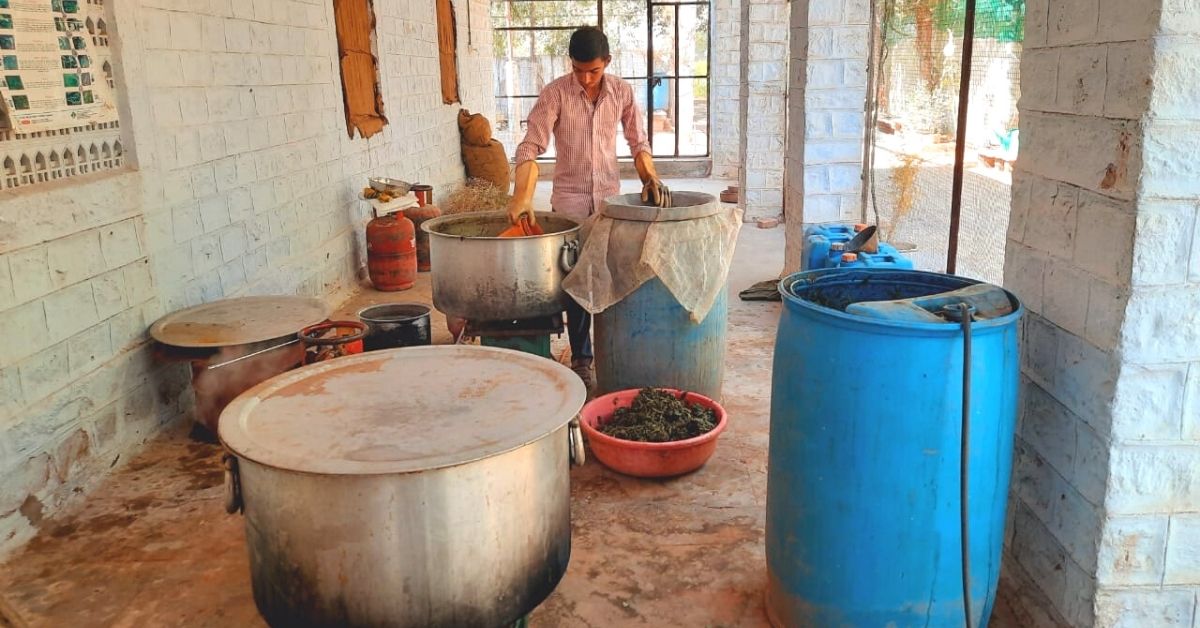
He says that customers were also not ready to pay a premium for organic produce. “It was important that customers buy and try the organic vegetables and fruits to understand the difference. Once the buyers realised the taste and quality, they returned to buy more,” Ratan adds.
Making a unique fertilizer
Ratan says that his struggling years led to creating unique blends providing the best nutrients to the soil. “I was using Jeevamrut, a mixture of gram flour, cow dung, cow urine jaggery and other natural materials. However, I kept thinking and studying the nutrients that plants absorb through the soil and how the quality could enhance. I treated soil as a human body and tried to feed it with natural nutrient-rich materials,” he adds.
The farmer started creating a mix from fodder residue, groundnut extracts, curd and other items from farm waste. The repeated experiments led to creating a fertiliser – turat furat khaad. “It is a mix of jeevamrut and residue of lentils, neem leaves and leftover fruits such as gooseberry, papaya and ber. In another mix – doodh hariyali khaad, I mix five litres of milk and curd, fermented in a copper vessel for about ten days. The mixture turns green and works as a replacement of DAP, a chemical fertiliser,” he says.
Ratan says that he replaced gram flour used in jeevamrut with lentils. “It reduced the chances of fungus in plants caused by gram flour. I also sprayed turmeric water on plants to prevent infection,” he adds.
Such experiments helped him grow a wide range of farm produce. Ratan grows lemon, pomegranate, custard apple, mango, bajra, moong, grams, sesame, cumin, coriander, fenugreek and other vegetables. “The organic methods provide better yield. The average wheat production for farmers in the region is 17 quintals but, I reap about 20 quintals,” he says, adding that he has adopted an intercropping farming technique that helps the natural exchange of nutrients in the soil.
An ambassador for harmful chemical-free lifestyle
Ratan says the cost of production has gone down with the innovative organic methods. “The buyers appreciate the quality of farm produce, and customers come from all corners such as Nahaur, Pali, Baltora, Jodhpur and neighbouring areas. The calculations show that I earn about Rs 20-30 lakhs as profits in a year,” he adds.
His successes earned him awards and have made him famous and an idol in the farming fraternity. In 2007, the then chief minister Bhairon Singh Shekhawat felicitated him with Swadeshi Gaurav Award, while in 2017, he was granted Mewar Gaurav Award, among others.
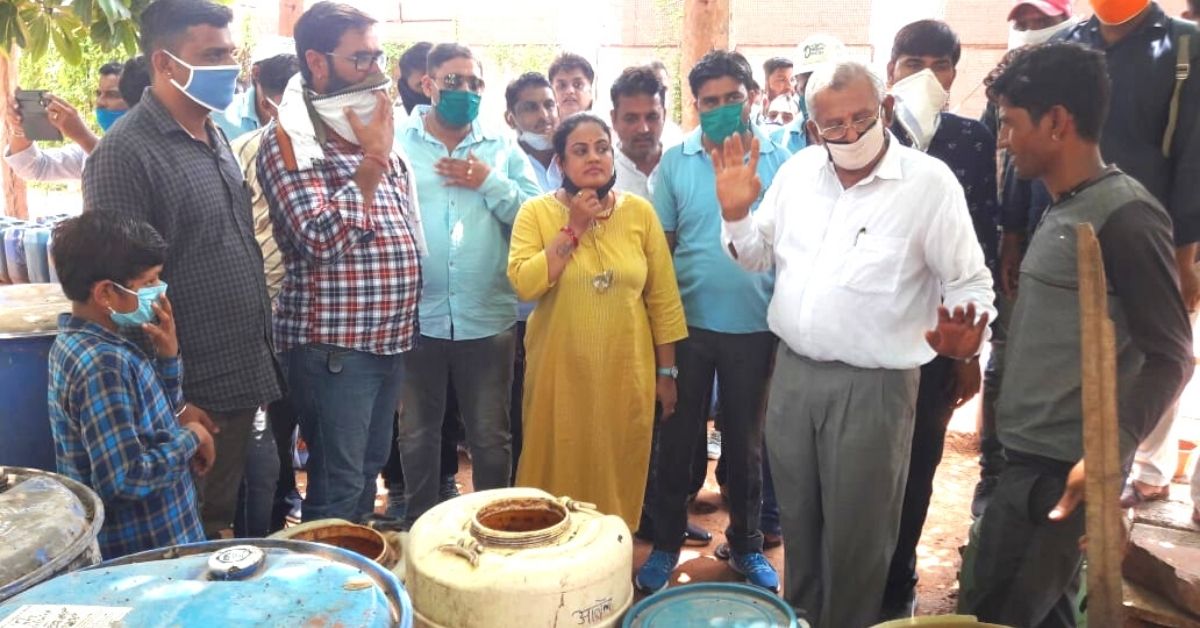
“I deliver lectures at agriculture institutes such as National Bank for Agriculture and Rural Development (NABARD) and Central Arid Zone Research Institute (CAZRI), Jodhpur. About 70 farmers have made a shift to the organic farming in the neighbouring areas,” he says.
Bhawna Sharma, founder of Ganga organics in Jodhpur, is one such student of Ratan. “People fondly call him Dadaji. I worked as an assistant researcher but started taking lessons on organic farming from Ratan. I am practising the same since 2016 and sell organic fertilisers to farmers especially, from arid regions like western Rajasthan as the rainfall is less,” she says.
She adds that organic fertilisers help increase the yield in such farms.
Ratan’s farm has hundreds of visitors, including NGOs, workers, students and farmers from other states. “Students often stay for 15-20 days to seek training,” he says.
However, he feels that more efforts are needed to help farmers adopt organic farming. “The main reason farmers refrain from pursuing organic farming methods is the uncontrolled growth of weeds. It becomes difficult to keep them at bay. Hence, I am finding ways to reduce weeds and unwanted grass,” he adds.
Ratan emphasises that farmers must understand the need for organic farming and realise the health impacts of poisonous chemicals they are consuming and giving them to masses through chemical fertiliser farming.
“People should also grow organic food at home. It will help people realise the importance of farming and chemical-free food,” he adds.
Edited by Vinayak Hegde

Similar Story
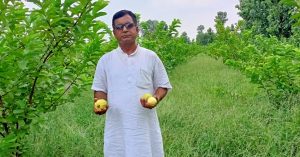
‘I Took A Risk & Won’: Wheat Farmer Switched to Growing Lemons, Earns Rs 7 Lakhs Per Harvest
Observing the year-round demand for lemons, Anand Mishra switched from growing traditional crops like wheat, paddy, and peas to cultivating lemons in Uttar Pradesh. With his two-acre farm now yielding Rs 7 lakh in profits, he explains the reasoning behind this ‘unconventional’ change.
Read more >
If you found our stories insightful, informative, or even just enjoyable, we invite you to consider making a voluntary payment to support the work we do at The Better India. Your contribution helps us continue producing quality content that educates, inspires, and drives positive change.
Choose one of the payment options below for your contribution-
By paying for the stories you value, you directly contribute to sustaining our efforts focused on making a difference in the world. Together, let's ensure that impactful stories continue to be told and shared, enriching lives and communities alike.
Thank you for your support. Here are some frequently asked questions you might find helpful to know why you are contributing?


This story made me
-
97
-
121
-
89
-
167












